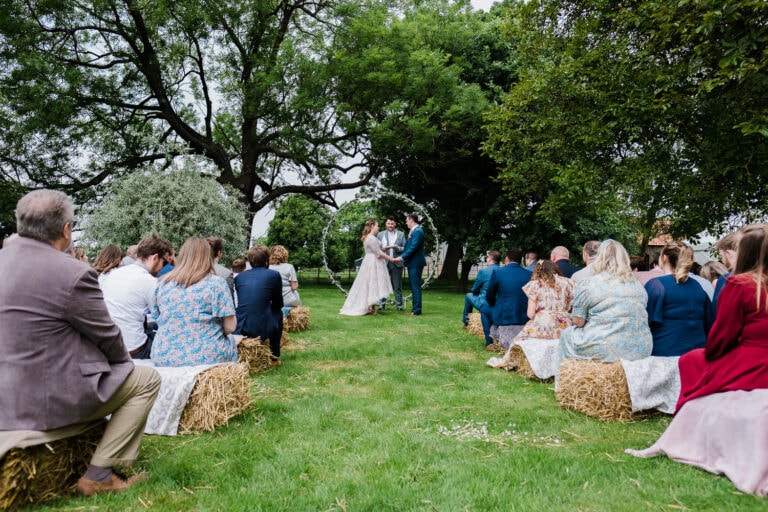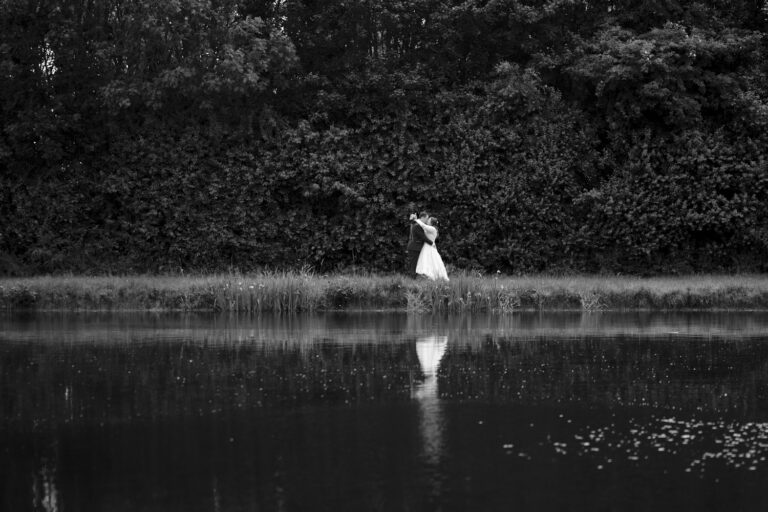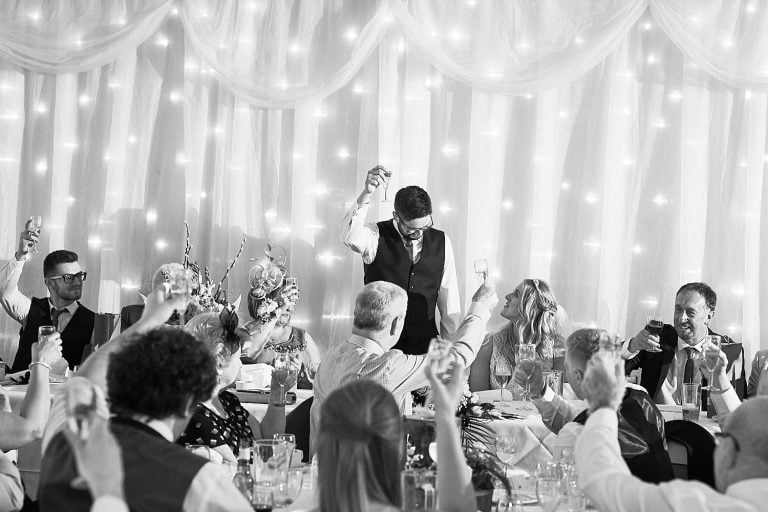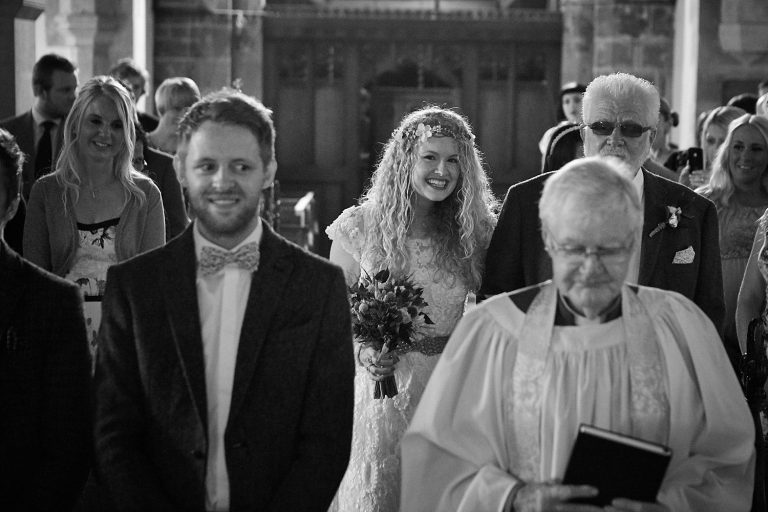Self Care for Brides-to-Be: How to Keep Your Mental Health in Check During Wedding Planning
Mental health during wedding planning is a subject that is hugely important. However, it feels like in the world of weddings, it never seemingly gets the attention it deserves.
Planning a wedding can be incredibly stressful. In a recent survey, over 70% of engaged couples or newlyweds described the process of planning a wedding as “extremely stressful”. In a different survey, it revealed the top 5 emotions while planning a wedding were:
- Excited
- Happy
- Stressed
- Overwhelmed
- Anxious
This shows that if you feel like your wedding is getting on top of you, you are far from alone. In fact, it is perfectly normal for it to affect your mental health.
From finding a venue to finalising the guest list to dealing with family drama, it’s easy to let stress take over and neglect your own mental well-being. But it doesn’t have to be this way. In this post, we’re going to look at ways to prioritise your mental health during wedding planning. Allowing you to find enjoyment in the planning process as well as feel great on your big day.
Needing an expert to speak with about this, I chose Jonathan from Garden Room Counselling. Not only is he a trained counsellor and mental health specialist, but he is also the owner of the beautiful Intimate Lincolnshire wedding venue The Elm Tree. This gives him a unique perspective on this topic that we are sure you will find useful.
Why is Wedding Planning so Stressful?
First things first. It is important to remember that it’s okay to feel overwhelmed. Planning a wedding is a big deal. It’s normal to feel a range of emotions that impact your mental health. As much as we wish they would, the everyday stresses and strains of life don’t go away, we just add wedding planning to the plates we are already spinning. The key is to not let the stress take over and negatively impact your daily life. This is where setting boundaries and learning to say “no” comes in. It’s important to set realistic expectations for yourself and others. It is also important to take breaks and make time for yourself to relax and recharge.
There are a few main reasons why planning a wedding is so stressful. Like every other couple, you want your wedding to be perfect. The problem with this is that planning a wedding is a completely new experience for almost every couple. There are so many things to think about, so many things that can go wrong (several of these are outside of your control). There are worries about family & friends’ reactions to your plans. Add in every wedding blog and social channel showing you perfect couples, at perfect weddings and there’s no wonder most couples feel that wedding planning is a major cause of stress.
What makes things worse is that if you show any sign of frustration or upset during the process, you may get referred to as a bridezilla (or groomzilla). It’s almost like during the planning of your wedding you must never show you are upset, enjoy every second and bottle those negative feelings up inside.
Jonathon says social media trends can mean people lose sight of the most important things. “Social media pressures can leave people feeling they ‘have to’ or ‘ought to’ do something; they see what in their eyes is this perfect wedding, whilst they are forgetting the fact that the most important part of their own wedding is the union of two people.”
“Wherever possible it is so important to not lose sight of this in the build-up. Your wedding is unique and special. It doesn’t need the alpacas in the garden or owls swooping down with the rings just because it’s popular on Pinterest.“
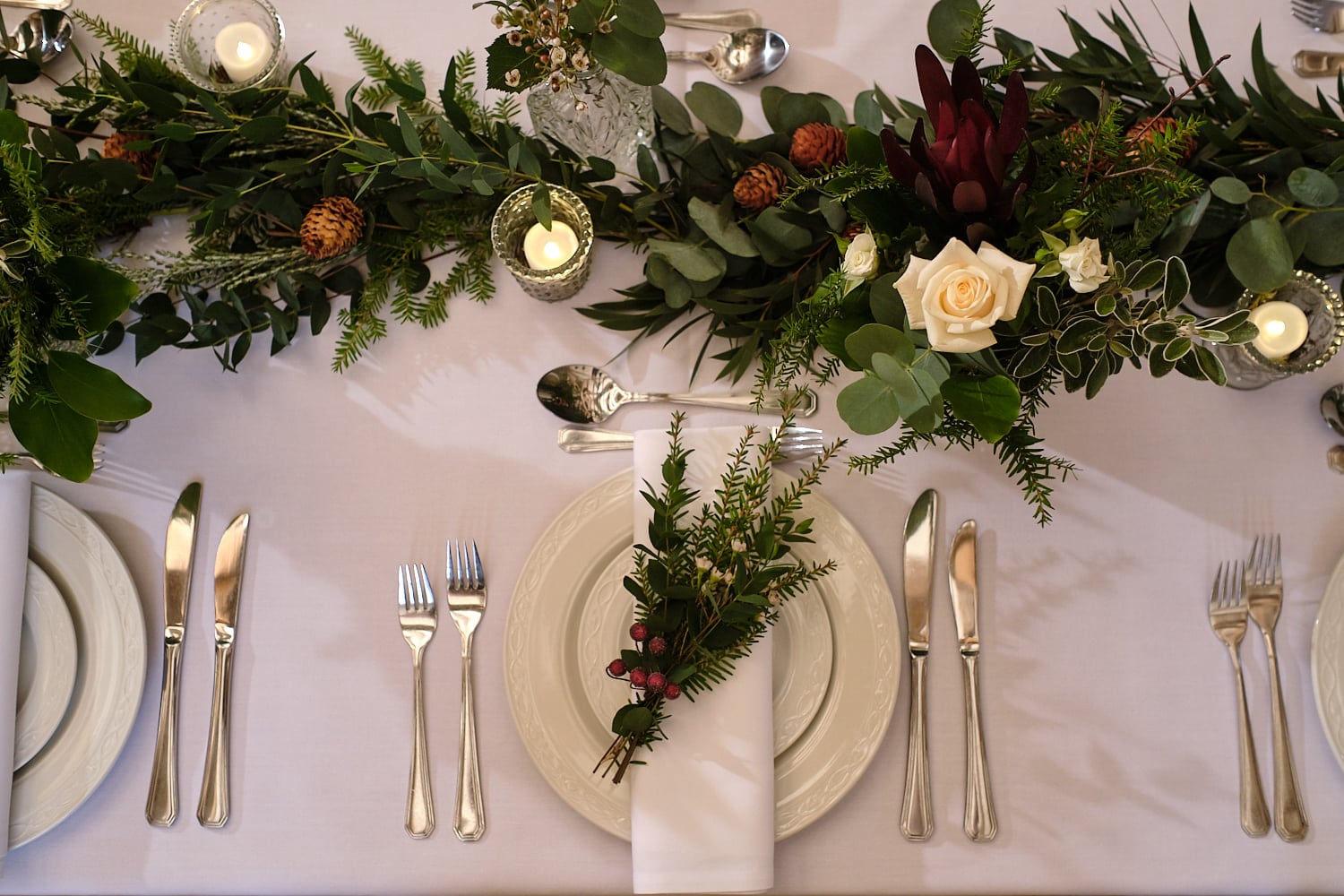
Is it Normal to Feel Stressed or Depressed During Wedding Planning?
I’m sure you’ve been asked if (or told) you are excited about planning your wedding more times than you care to remember. But, rarely do people ask how you are feeling, or how planning is affecting your mental health. This leads people to feel that being depressed or overwhelmed is something nobody else experiences.
By getting married you are making a major change to your life and this in itself can be overwhelming. Depression or stress are not signs that you are having doubts, they are common experiences, but as weddings are always seen as a celebration, it’s easy to feel the expectation to hide these feelings.
In the beginning, wedding planning is exciting. You are marrying the person you love more than anyone else in the world. Everything feels great and researching where, when and how you are going to get married is exciting. As the realisation of what you need to organise hits, overwhelm comes bounding along and it feels like you have no idea where to start.
Another common point of stress during the planning is trying to work around dates with several suppliers. If you have your heart set on a venue, but then find out the only date they are available, your photographer and caterer are not, it can leave you with a sense of dread and those questions creep in. What if we go for another photographer and the photos are awful? What if we choose a different venue and we hate it? It can lead to a nagging fear that lingers and grows.
Finally, there are friends and family. When you are planning a wedding, advice comes from everywhere. Friends, family, the person at the shop who, because you bought a wedding magazine, decides to spend 10 minutes showing you her wedding photos, telling you how wonderful it was and telling what you must do on your wedding day (this actually happened to me). Generally, this advice is well meant, even if not wanted. However, when your family are the 14th person that day to tell what you need to do, it can lead to the overwhelm (and arguments). Jonathon says, they are not mind readers and simply asking them to rephrase questions can work wonders for your mental health.
“People, family and friends, are not mind readers; they might notice that you are getting stressed, but help them understand what it is like for you right now. Rather than them telling you what you need to do, ask them to use phrases such as ‘What is it you need right now?’ Or ‘What would you like me to do?’ Rather than them giving you more instructions and therefore contributing to the feelings that you are out of control, instead, it makes you feel supported.”
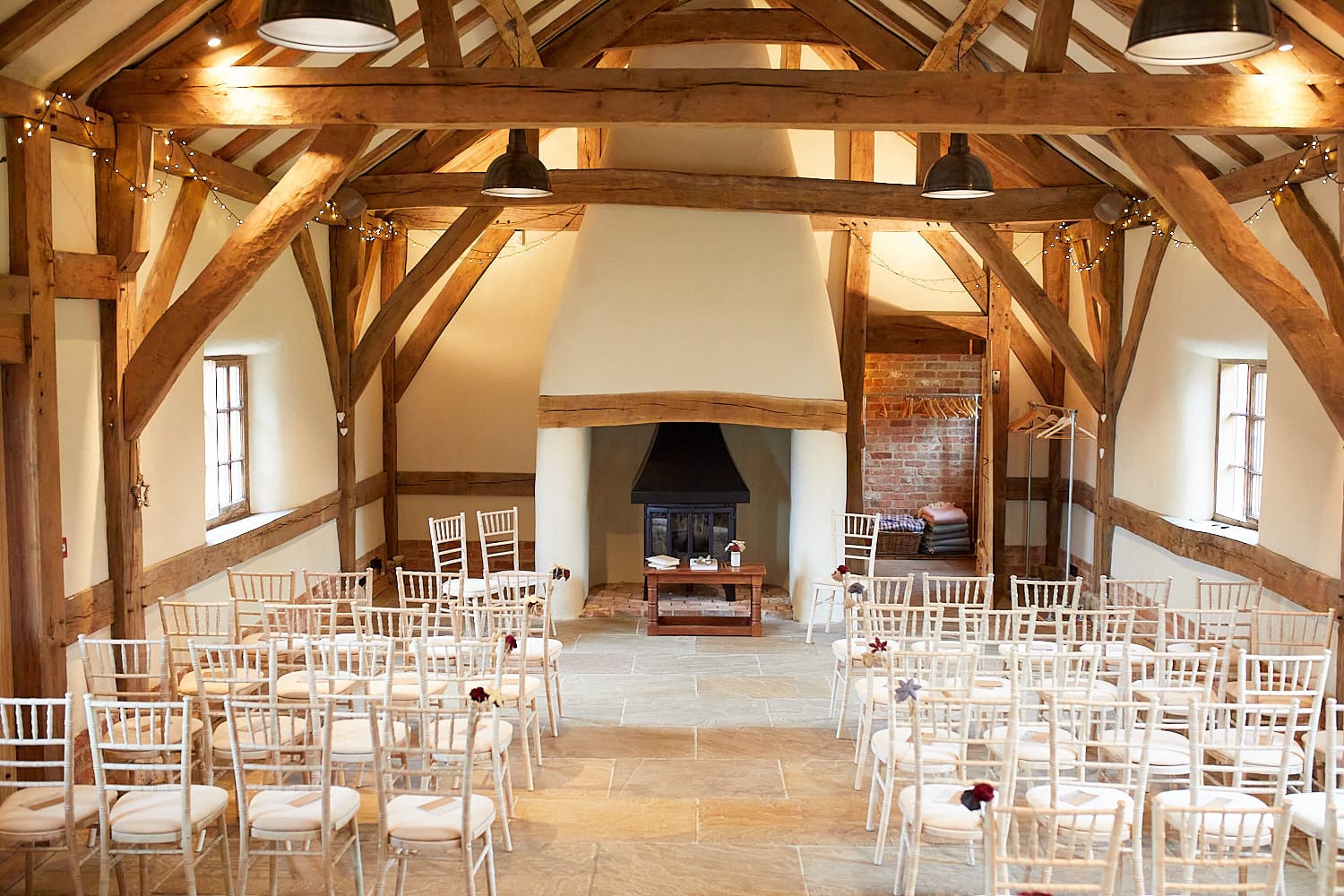
What is the Hardest Part of Planning a Wedding?
Most couples say the most stressful part of wedding planning is deciding on the guest list. There are so many things to think about and each of these decisions will possibly lead to some form of upset or argument. Do we allow plus ones? What about kids? If we invite them, do we also have to invite…….
I wish there was some magic formula here. A simple couple of paragraphs in this blog post that will solve your dilemmas. Unfortunately, there isn’t. Not inviting people to weddings can lead to arguments and upset. When it came to planning the guest list for our wedding, I always kept this quote in the back of my mind:
Those who mind don’t matter, and those who matter don’t mind
Dr Seuss
The best advice is to be mindful of others’ feelings but be assertive. It is your day and you invite who you want. If your family has ideas of who you should invite, you should find time to sit down as a couple and talk with them. Explain why you don’t want to invite certain people. A key thing to remember here though is to treat both families equally. For example, if all your partner’s cousins are there and none of yours were invited, it can become a cause of tension.
There are also other considerations. How many does your venue hold? And perhaps most importantly, how far can your budget stretch? If either of these things mean you need to limit numbers, that is fine, but try to let people know you are keeping the wedding small from the start.
The most important thing is to try not to feel guilty. If people get upset about who you choose to have at your wedding, that says way more about them than it does about you.
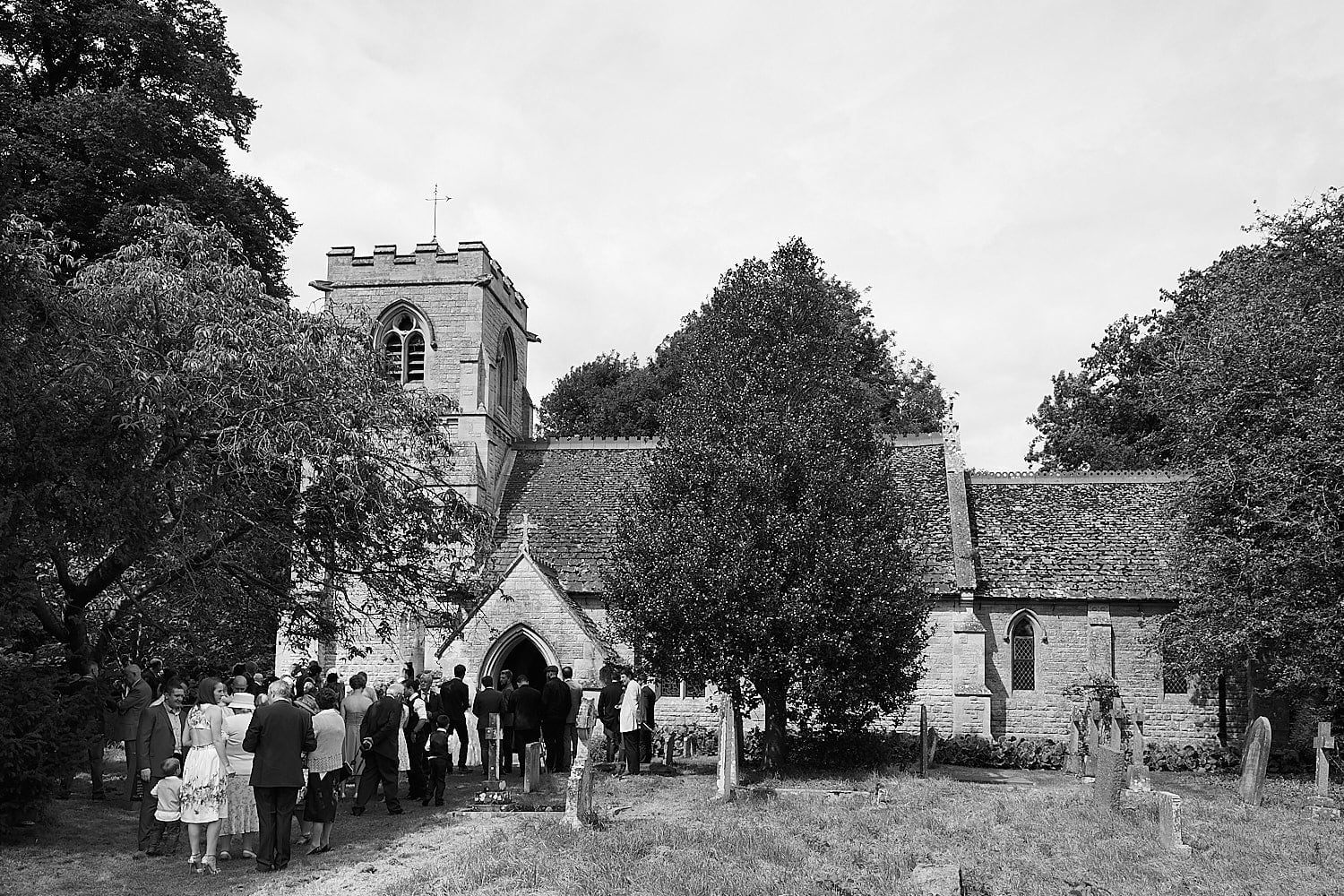
How to Spot the Signs of Stress
Stress can make itself known to us in a variety of ways. When you notice the warning signs, it’s important to take notice. Here are the top 3 warning signs that you may be suffering from stress when planning your wedding:
- Physical symptoms: Stress will often show itself in physical ways. Signs may include headaches, muscle tension, fatigue, and even changes in appetite or sleep patterns.
- Emotional Symptoms: Stress can also affect our emotions, making us feel anxious, irritable, or depressed. These symptoms are sometimes hard to spot and may show up in some of the following ways. You suddenly don’t enjoy planning for your wedding like you used to. You‘re procrastinating. The flip side of this is trying to do it all. Allowing wedding planning to take over every waking moment because if you don’t do it all now, the day will be a disaster.
- Behavioural Symptoms: Not going out with your friends because you can’t bare being asked if you are excited about the wedding again. Having a couple of extra glasses of wine on nights you are working on the wedding? These are telltale behavioural symptoms of things getting on top of you.
Whilst it may be hard to admit you are struglling, it is important you recognise these signs early and look after yourself. This could be taking a planning break or talking with a close friend or family member. You may even want to speak with a neutral third party, such as a counsellor.
“I always say to my clients, notice what changes are happening within the body” Jonathon says, “sadly no behaviour is isolated and there is always a reason for it.”
“Are you struggling to concentrate? Are you becoming more snappy or irritable? Do you find it hard to sit still and become more restless? Are you lacking in energy? Feeling yourself getting more headaches? Are you feeling sick or lacking in appetite? All of these can indicate you are starting to struggle and it is really important that you notice these changes and try to act before they become overwhelming.”
Whatever you do, don’t try to simply plough through it. By doing this, your mental health may get worse, which can lead to you hating the planning and dreading the day.

How to Help Minimise the Stress of Wedding Planning?
Whilst there is no silver bullet, there are several things you can do to help reduce the stresses of wedding planning.
Practice Mindfulness
Mindfulness is a great technique to help relieve stress and anxiety. Focussing on the here and now is something that many people find helps ground them through the wedding planning experience. Finding 5 minutes in your day to be still and focus on yourself is really beneficial. If you are struggling to get started, there are several great apps to help you practice mindfulness, such as Calm or Headspace that can be really useful. Alternatively, YouTube has several great videos on the topic.
Turn Off Insta
Social Media is a great tool to help with planning, but when you are being bombarded with amazing wedding after amazing wedding, featuring perfect couple after perfect couple, it can be really easy to fall into the trap of thinking your wedding will never be as good. This can then lead to you planning certain things because you think you should have them, rather than actually wanting them. Take time away from social media. I know you’ve heard it before, but Instagram is not reality. If you find a certain account makes you feel down, delete it.
Plan Non-Wedding Time With Your Partner
It’s easy to get caught up in spending every minute of your time thinking about working on planning your wedding. Whilst this can be fun, at times, it does get stressful. Having a partner who doesn’t have a strong opinion either way on what colour the napkins should be is trivial. But, sometimes, when you are stressed about planning, this can be the spark that leads to a huge argument.
It’s really important to take some time away from wedding planning to enjoy being a couple. Yes most wedding fairs are on weekends, but you don’t need to go to them 5 weekends in a row. Going out for coffee and a movie with your partner can be much healthier for your relationship and your mental health.
Talk to Someone
The worst thing to do is to bottle these feelings up. Friends and family are great for helping you let off steam. But, because friends and family are involved in the wedding day, it can feel hard to tell them your true feelings. For times like this, Jonathon says a neutral party, such as a counsellor, can really help you work through your feelings.
“If you are feeling the joy and happiness of planning the wedding is ebbing away, then talking to a neutral party can always help. As with all therapy the importance of a relationship is key – you have to feel comfortable. Remember, nothing is ever silly or daft. If it is bothering you then it is important!
When it comes to finding a therapist, Jonathon says “There is a great directory of therapists called counselling directory – does what it says on the tin! On here you can find therapists that are near to you and you can usually have a free initial chat with them before starting to see if they are going to be the right fit for you!”

How do I Mentally Prepare for my Wedding Day?
Preparation for your wedding day breaks down into two key areas. Before the day & On the day. Each is important for your mental health, so try to get into some good habits as soon as possible.
Before Your Wedding Day
Confronting any problems and looking after yourself is key in the run-up to your wedding. Here are my top 4 tips.
Talk With Family Members About Their Behaviour
The key here is communication. If you are concerned about the behaviour of a family member, sit down and talk with them. Be honest and open and tell them why you are worried. Many couples are worried about family dynamics on their wedding day, but those who spoke with them beforehand felt a lot more confident on their day. Generally, people tend to behave themselves during a wedding day and even if they don’t, other guests will help diffuse a situation before it goes too far.
Have an Anxiety Action Plan
With regards to anxiety, have someone in your inner circle who you can talk to about your worries and concerns. Together, come up with an action plan for if you do become overwhelmed. This can include planning a way to get 5 minutes of peace should you need it. Sometimes a little hand squeeze from a friend or a hug along with a whisper of “you can do this” is all you need. Your friends and family know you and they will help alleviate your stress in any way they can.
Drink Plenty of Water & Eat Good Food
Whilst it may sound boring, drinking plenty of water, eating nutritious food and good sleep patterns are some of the best ways to improve your mental health and get your body ready for the big day.
Limit Alcohol the Night Before
The key to looking after your mental health on your wedding day actually starts the night before. Try to limit your alcohol intake. It can be easy to get caught up in having a last drink as a single person, but, waking up with a hangover is never fun. Doing it before a 16+ hour wedding day is something that isn’t recommended.
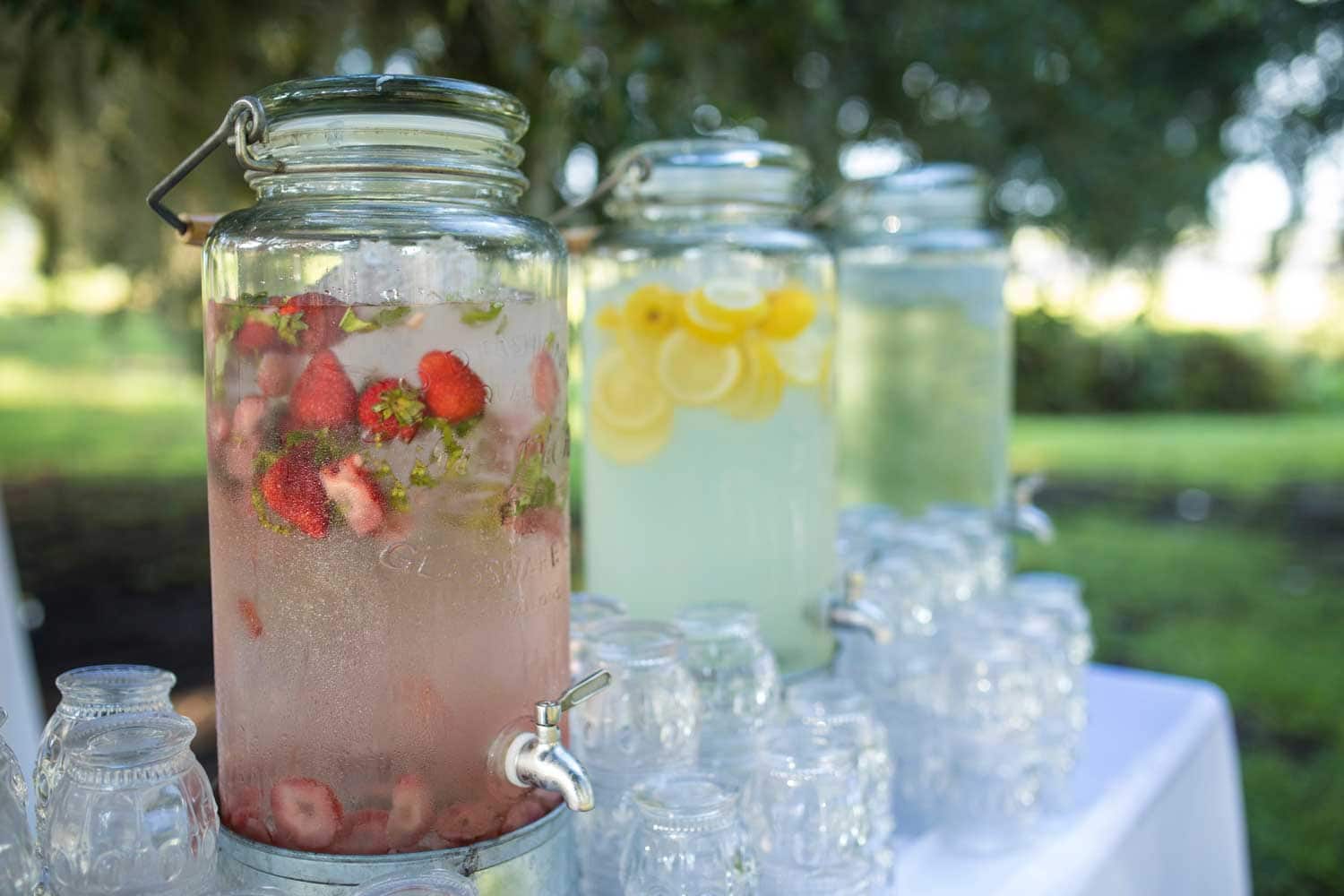
On Your Wedding Day
There are some simple things to do on your wedding day that really help you keep your mental health in check. Here are my top 5 tips.
Make Time for Breakfast
I know this part of the post has become full of “sensible” advice, but starting the day with breakfast is super important. It doesn’t have to be a full English, but something to kick-start your metabolism will help your mental and physical well-being. Your body needs the nutrients to help you handle what is going to be a hugely emotional and physically draining day.
I know the nerves can mean that eating is the last thing you feel like, but eating even a little is makes a huge difference. Make sure you try to avoid foods that are full of sugar and large amounts of caffeine, as both of these can increase your anxiety.
Stay Hydrated
As with food, making sure you drink enough water is something that is easily forgotten during a wedding morning. I know the champagne is more tempting, but staying hydrated will not only help you feel better but it is shown to help reduce anxiety. In a medical study it was found that those who drank limited water were up to twice as likely to suffer with mental health issues. When it comes to drinking water on the day, just like Champagne, little and often is the best way.
Breathing Techniques to Calm When You Feel Overwhelmed
A little tip to help you calm yourself in moments of panic is to practice breathing techniques. These techniques are great to help you calm your nerves and can be done very discreetly without anyone noticing. My personal favourite is four square breathing, also known as box breathing.
It’s a very simple method that involves just 4 steps:
- Inhale for a count of 4
- Hold the breath in your lungs for a count of 4
- Exhale to a count of 4
- Keep your lungs empty for a count of 4
You can repeat this for as long as you need (Jonathon recommends around 90 seconds for maximum impact). Not only does it fill your body with oxygen, it gives your brain something simple to focus on.
Make Time for Mindfulness
Finding 5 minutes on the morning of your wedding to focus on the here and now can be a powerful way to help reduce on-the-day anxiety. If you have been practising mindfulness on the run-up to your day, taking 5 mins in the morning will start your day right and give you that all-important wedding morning mental boost.
Find Time for Each Other.
A wedding day can feel like it is going at 100 MPH. To quote my 80’s Teen Movie Hero Ferris Bueller “Life moves pretty fast. If you don’t stop and look around once in a while, you could miss it.” Make sure you schedule some alone time into your day for you as a couple. Taking 10 minutes together allows you to catch up and celebrate the fact you are now married.
As a wedding photographer, I encourage couples to spend a few minutes alone together whilst I take some photos. You don’t need to pose. In fact, you don’t need to do anything other than enjoy some alone time together. The love and emotion will shine through in the photos and gives you time to catch your breath before you head back to the party.
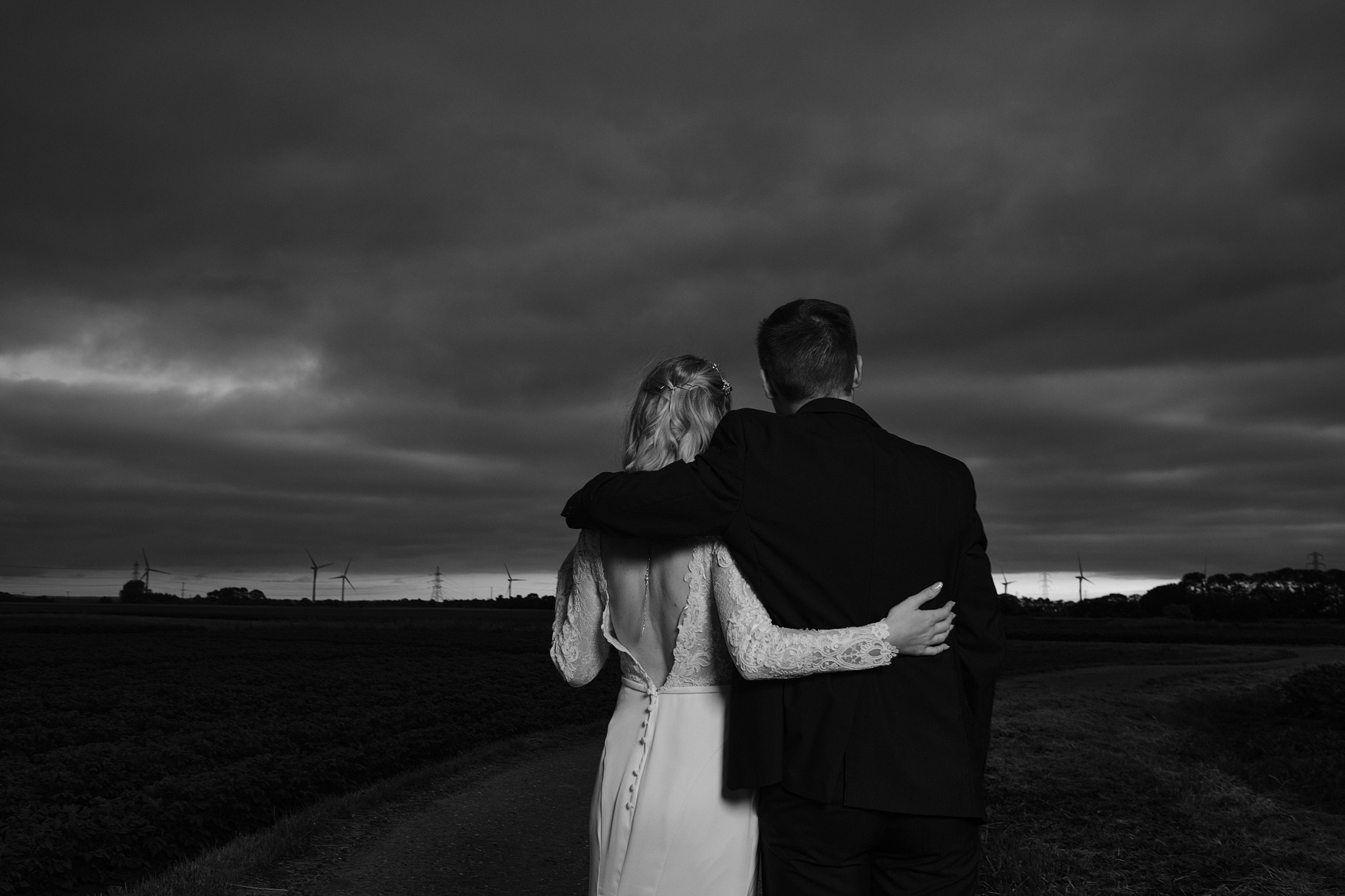
You Can do This!
To end this blog, I want to be your virtual cheerleader. It is OK for you to feel overwhelmed and anxious when planning your wedding. You can do this and I promise you, your wedding day is going to be amazing! Take time for your mental health and be kind to yourself.
As a handy reminder, here are my six top tips for looking after your mental health when planning your wedding.
- Remember, it’s OK to feel stressed. It isn’t just you!
- Listen to your body. It will let you know you need a break.
- Be assertive. If something isn’t right, let people know.
- Take a break from social media. If an account makes you doubt your wedding, unfollow them.
- Drink water and eat well. Yes, it’s boring, but it works!
- Almost every couple feels uncomfortable having their photo taken (even those who say they don’t)
- Lastly, things may go wrong. Nobody will notice and it will not ruin the day. Practice your inner Elsa and let it go.
Remember, there are many reasons to feel stressed about planning your wedding. You need to make sure you watch out for yourself and remember it’s OK to not be OK. As much as it can be stressful, many couples miss planning after they are married. Will you be one of them?


